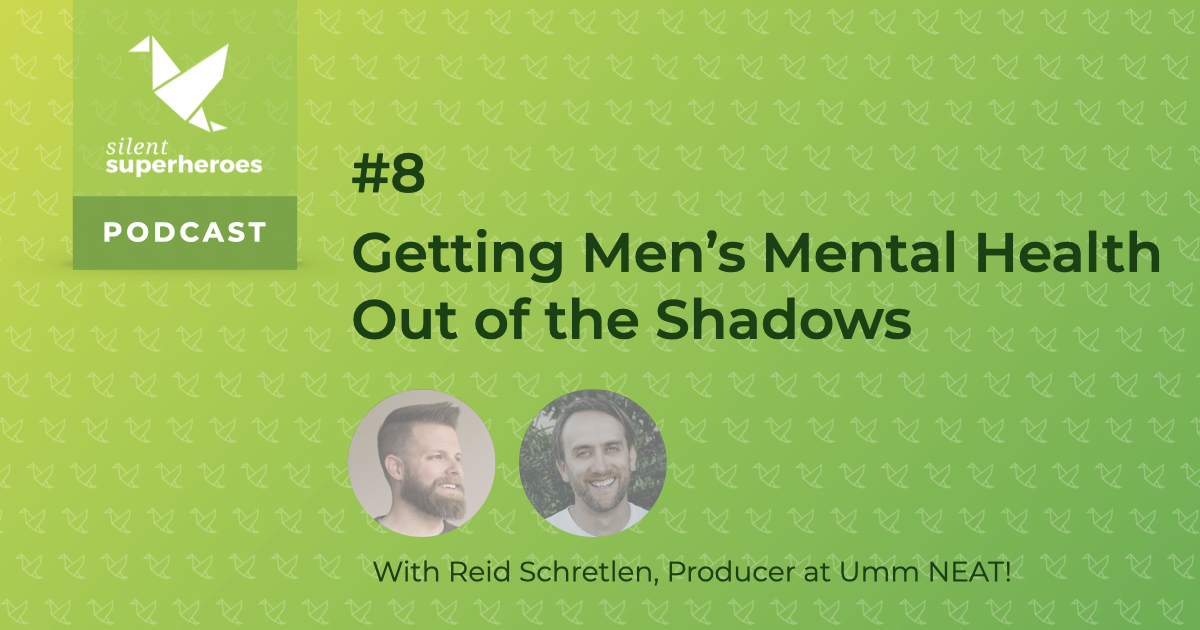Competitive, adventurous, life of the party, a rock.
All things friends might have said about Reid before, through the course of a year, he experienced a series of setbacks: a close friend died, he was laid off and he broke his arm while snowboarding. Those setbacks put him in a depression that robbed him of his interest in family, friends and getting up into the mountains.
Listen To Episode 8
Podcast: Play in new window | Download (Duration: 51:07 — 29.5MB)
Show Notes
Armed with a diagnosis, Reid tackled depression like any injury: repair, rehab and build the muscle that reduces the risk of further injury. Now, as a result of directing the video “Shadows : A Conversation About Men’s Mental Health”, Reid has become a mental health advocate. He encourages men to share their experience of struggling with mental health.
In this episode of Silent Superheroes, Reid and I discuss why men aren’t good at talking about their feelings. We make the case that mental and physical health are the same. Reid shares the support he got for mental health at the tech company he works for, and gives a template for the experience everyone should have managing mental health at work.
Links
- “Shadows : A Conversation About Men’s Mental Health” (video)
- “TED Talk : We all need to practice emotional first aid” (video)
- Lost Connections by Johann Hari (book)
- CMHA Suicide Prevention Training (education)
- Canadian Mental Health Association (organization)
- Third Space Coffee Kelowna (organization)
- Third Space Mind (counseling services organization)
- Reid’s social (Twitter, LinkedIn, Youtube)
About Depression
Depression is a mood disorder that causes a persistent feeling of sadness and loss of interest. This disorder is also called major depressive disorder or clinical depression. Depression affects how you feel, think and behave and can lead to a variety of emotional and physical problems. Because of those problems, you may have trouble doing normal day-to-day activities, and sometimes you may feel as if life isn’t worth living.
More than just a bout of the blues, depression isn’t a weakness and you can’t simply “snap out of”. Depression may require long-term treatment but don’t get discouraged. Most people with depression feel better with medication, psychotherapy or both. People fare best when they commit to working with depression.
Getting Support
Remember, the people you hear on Silent Superheroes are sharing their opinions about mental health and mental illness. They are not giving advice. For that reason, please consult with your care provider before making a change to your treatment approach.
It’s important to take your mental health seriously. Consequently, if you need to speak to someone you can call 1-800-273-8255, or text crisistextline.org on 741741. Both provide 24×7 confidential counseling to people in the United States. Worldwide visit http://iasp.info/resources/Crisis_Centres/
Because you listened to the podcast, you can help others find it by leaving us a review on iTunes. Or if you don’t use iTunes, leave a review on your favorite podcasting service.


